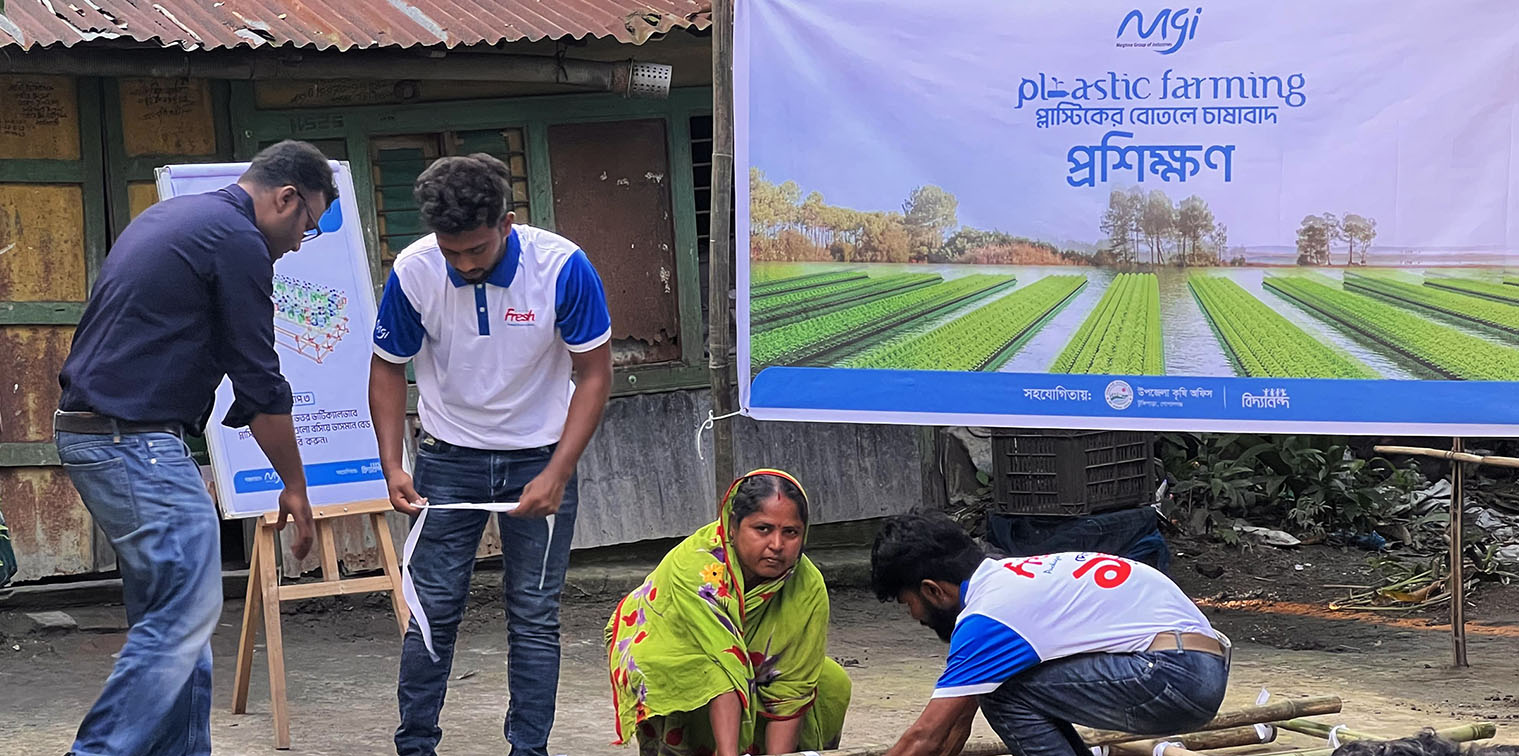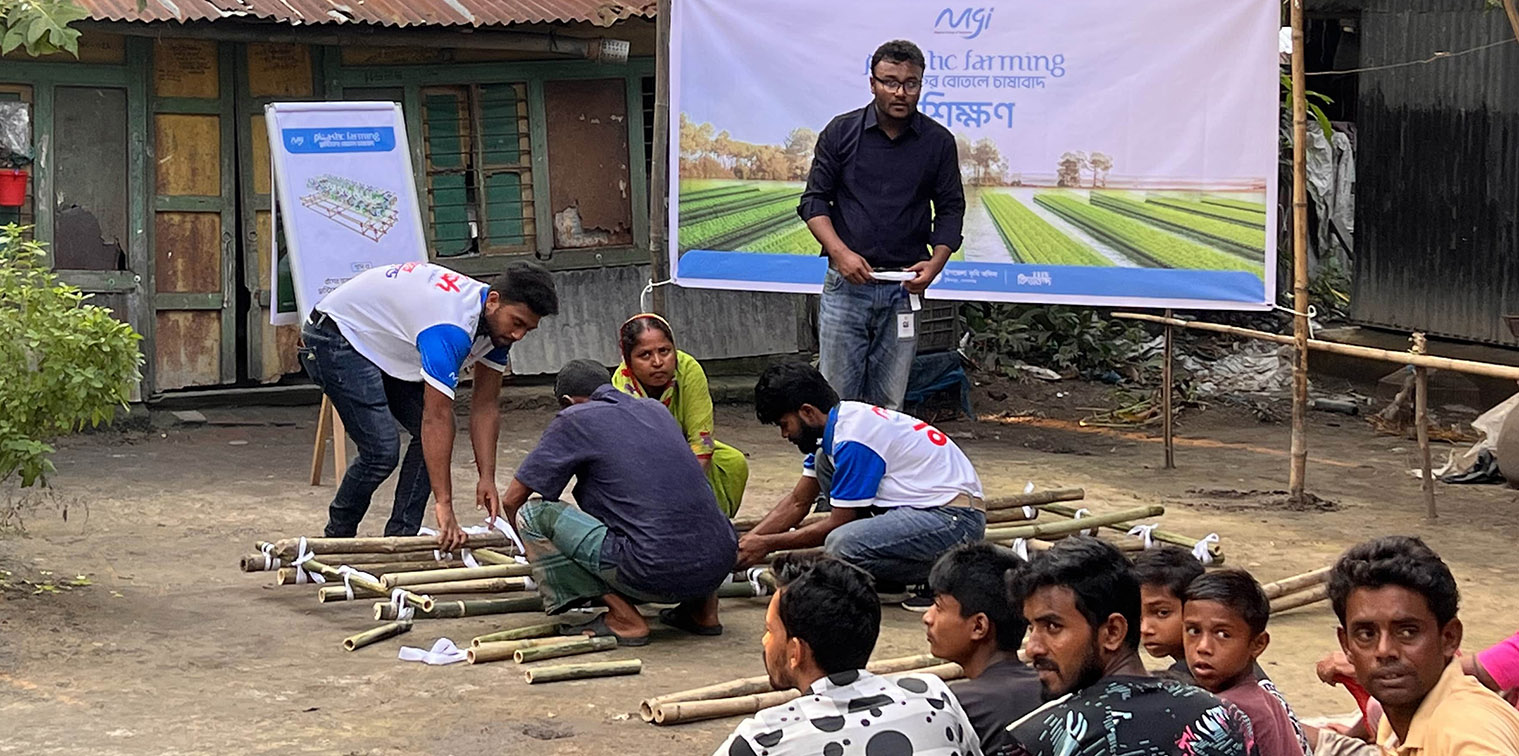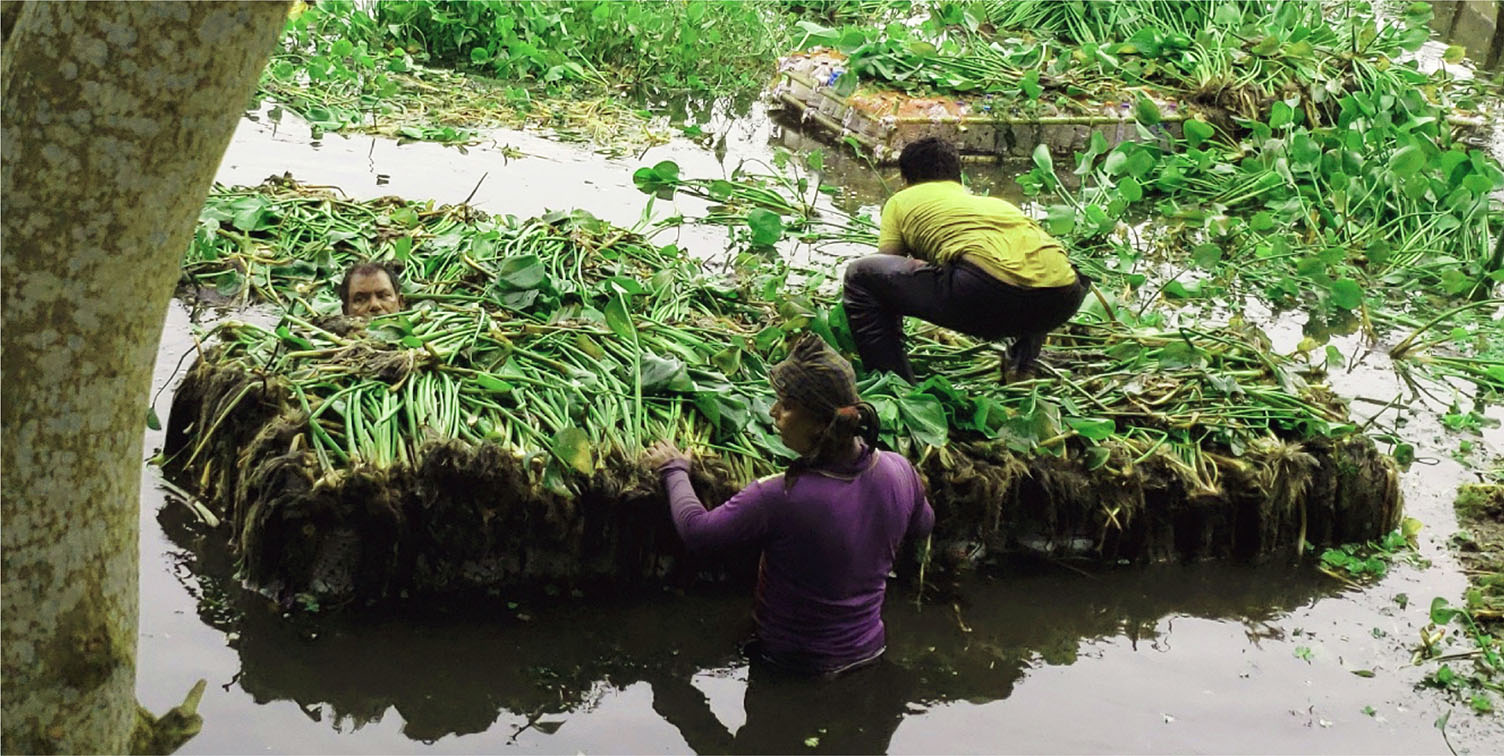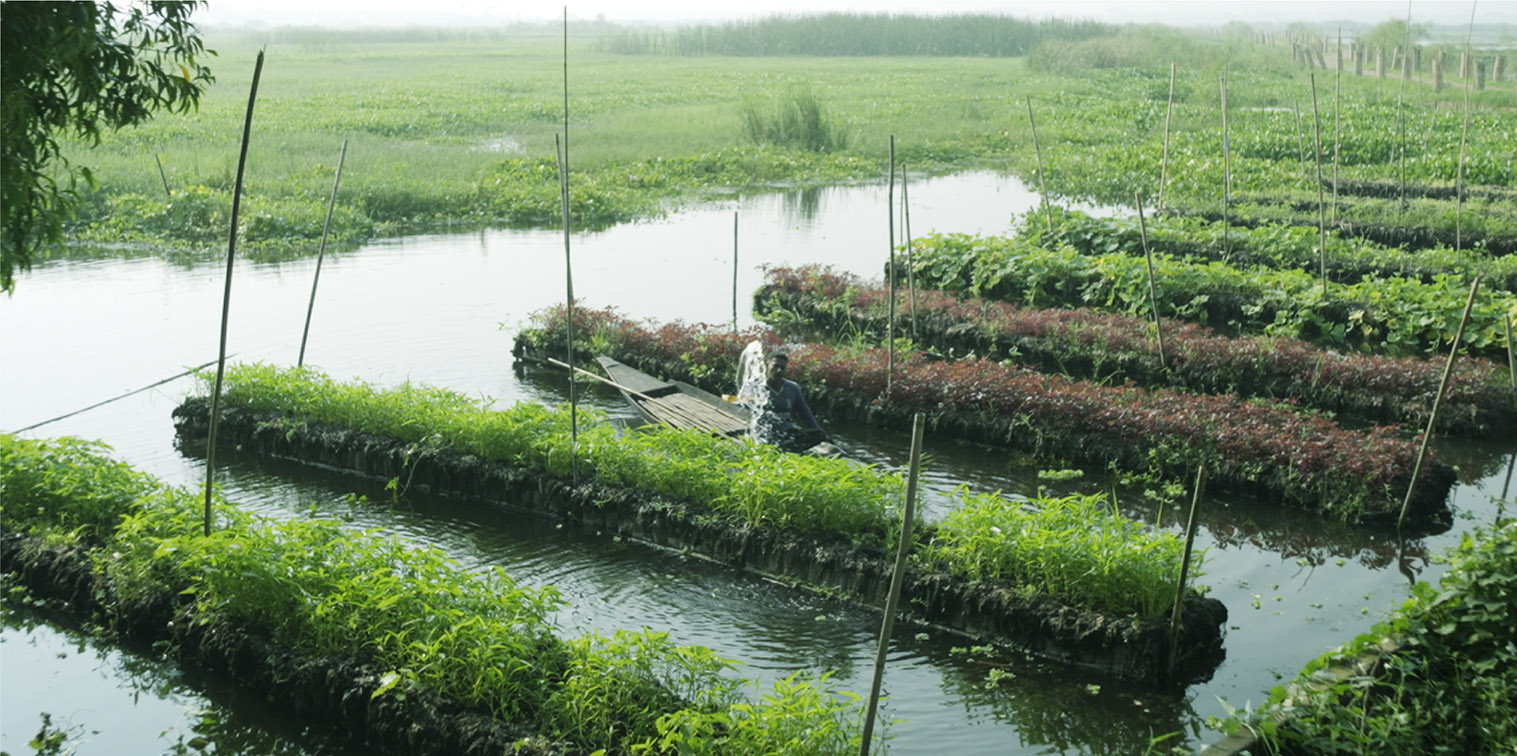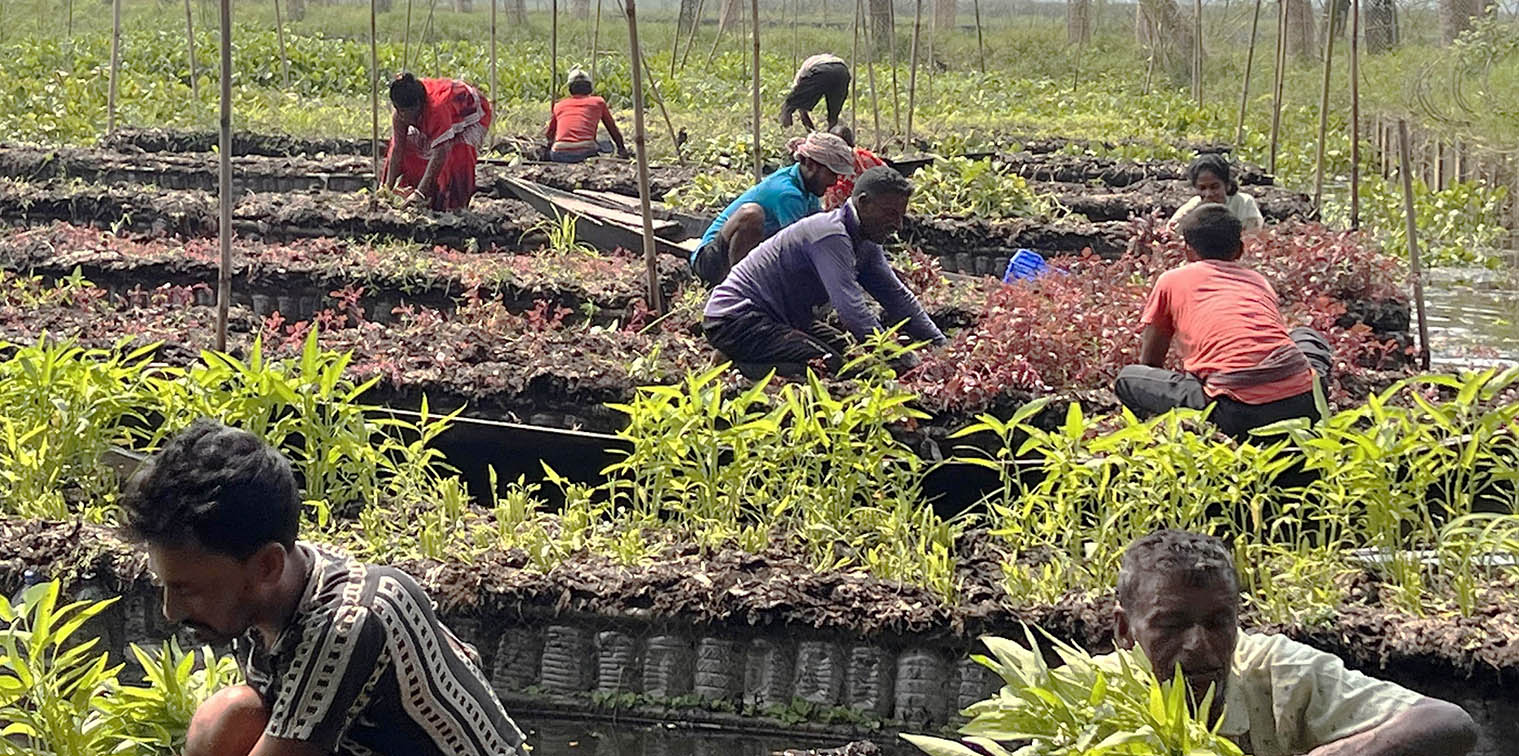MGI transforms plastic waste into floating farms for landless farmers
Bangladesh faces multiple challenges due to climate change and environmental degradation. One of the most pressing issues is the loss of agricultural land due to rising water levels and floods. According to the Dhaka Tribune, there are over 4 million landless farmers in the country, who struggle to find livelihoods and food security. Moreover, the rivers of Bangladesh are heavily polluted with plastic waste, which carries 73,000 tons of plastic waste every day, as reported by The Daily Star. This not only harms aquatic life, but also contributes to global warming.
MGI, a conglomerate that has products that contribute to plastic pollution, felt it was their responsibility to help change this situation. After two years of research, they invented a new farming process that uses plastic waste as a resource. They partnered with Asiatic MCL Bangladesh to create “Plastic Farming,” an initiative to turn plastic waste into floating farms.
To spread the project, they partnered up with Bidyanondo, a voluntary organization that brought the landless farmers together, and the local government’s agriculture officers who taught them the process of Plastic Farming. Together, they taught farmers how to collect plastic from water bodies and use simple bamboo frames, the collected bottles, water hyacinth, and crop seeds to begin Plastic Farming.
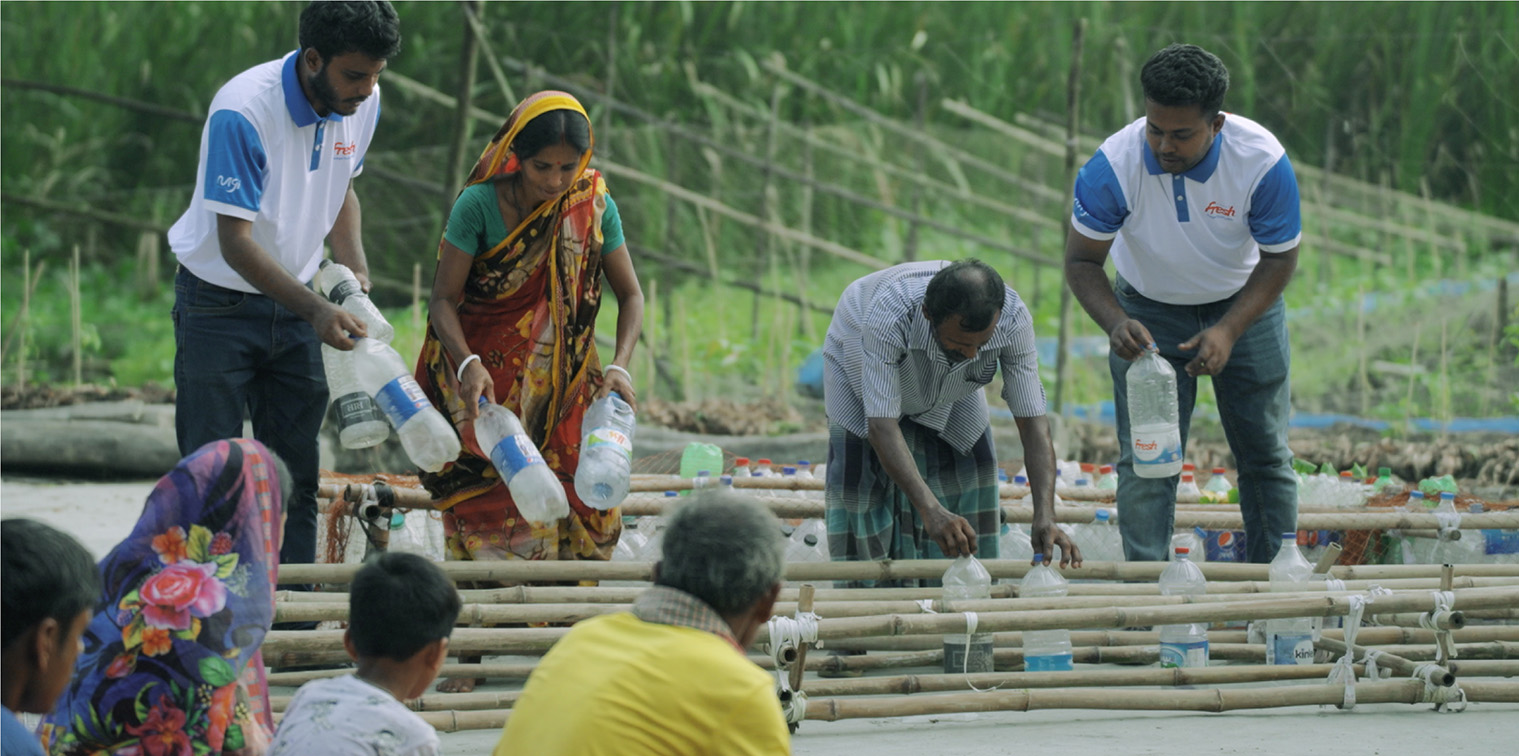
Initially over 500 farmers around Pirojpur and Gopalganj were taught about Plastic Farming. Then nationwide activations, a free website, video tutorials and manuals attached to MGI products were released to help other farmers. To take care of any potential microplastic, the farmers were shown how to release fungi around the sites.
The project had a positive impact on the lives of the farmers and the environment. It enabled over 2 million acres of potential farmland, collected 117 tons of plastic waste, trained 15,232 farmers hands-on, held 117 online and offline training sessions, and distributed 100,000 flyers. The project also increased the nation’s productivity, strengthened food security and changed agricultural norms.
MGI’s Plastic Farming is an example of how a brand can take responsibility for its environmental impact and create a solution that benefits both the people and the planet. It is a testament to the power of innovation and collaboration to tackle the challenges of the 21st century.
To learn more about the project, click here.
Credits
Agency: Asiatic MCL
Client: MGI
Client: Kazi Md Mohiuddin
Senior General Manager, Brand, MGI
Project partner: bidyanondo foundation and Local Government Agriculture Office
Managing Director: Ferdous Hasan Neville
Executive Creative Director: Mohammad Akrum Hossain
Lead Growth Officer: Sadib Ehsan
Senior Creative director: Md. Abdullah Al Rana
Account Director: Arabi Rahman
Director, Strategic Planning: Protyoi Sinha Raeq
Executive, Digital Advertising: Sumsuddin Al- Mahmud (Shezan)
Creative Manager: Kazi Naim Uddin
Senior art director: Md. Tahidul Islam
Senior Visualizer: Md Azizul Haque
Copywriter: Farzana Yesmin Mukta
Copy writer: Anindya paul
Senior Web Developer: Md Tanzib Hossain
Senior Visualizer: Shahida Arobi
A production of A-Minor Studio & Empty Yard
